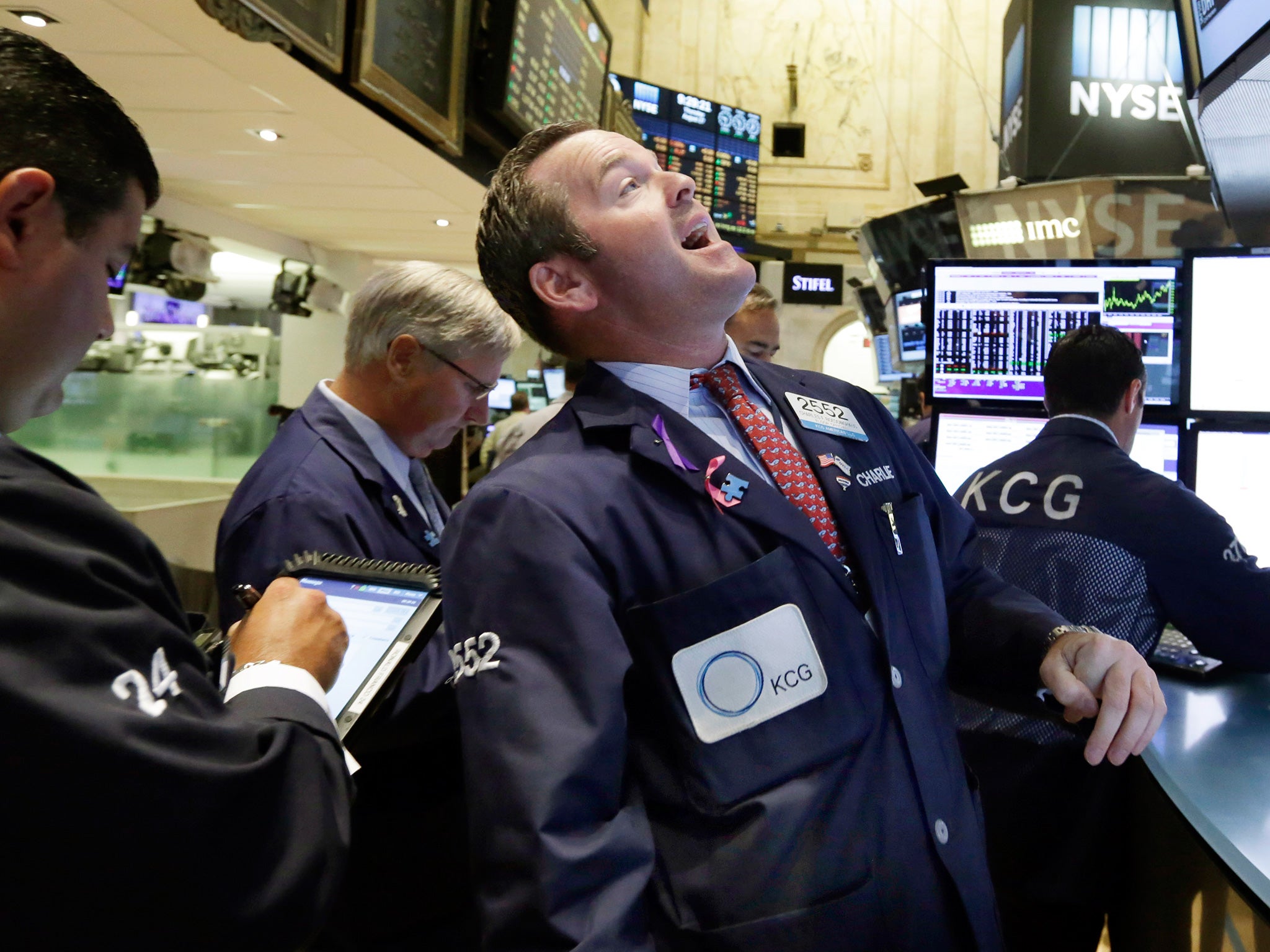World markets: US economy to the rescue as week's losses are wiped out
Stocks rally around the world but richest man in China says growth 'fantasy' must end

Markets around the world roared back on Thursday amid signs of a rebound in the American economy, where officials revised annual economic growth up to an impressive 3.7 per cent in the three months to June.
In London, the FTSE 100 closed up 212.8 points at 6,192.03, a rise of 3.6 per cent, recovering nearly all the losses from the week, while key indices in Paris and Frankfurt also ended on gains of more than 3 per cent.
The benchmark US indices – the blue chip Dow Jones, tech-heavy Nasdaq and wider S&P 500 – managed to wipe out all the losses chalked up earlier this week, ending up more than 2 per cent as they posted their biggest two-day gains since 2009.
However, global traders could be bracing themselves for another rollercoaster ride on Friday after a volatile last hour of trading in New York briefly saw nearly all the day’s gains lost, before the markets bounced back up again.
The markets started rallying on Wednesday after William Dudley, one of the more hawkish rate-setters at the US Federal Reserve, fuelled hopes that the era of easy money for investors would continue for longer than expected. Traders took heart from his comments that the market turmoil had made the case for a September interest rate hike “less compelling”.
But Thursday’s revision to second-quarter US growth increases the dilemma for US Federal Reserve rate-setters at their meeting in the middle of September, and could even put an interest rate rise back on their agenda.
The world’s largest economy expanded by 3.7 per cent on an annualised basis in the three months to the end of June, the Commerce Department said yesterday, up from its initial estimate of 2.3 per cent.
Consumer spending, which accounts for more than two-thirds of economic activity, grew at a 3.1 per cent rate, rather than the 2.9 per cent pace reported last month.
A strong US jobs market, cheaper petrol and relatively higher house prices are boosting household wealth, helping to support consumer spending, according to Wall Street economists.
Before the stock market turmoil began, many had expected the Fed would start increasing the cost of borrowing next month as the US economy strengthens, and traders will be watching this weekend’s Jackson Hole meeting of central bankers closely for clues about what the Fed is thinking.
Earlier in the day, China’s Shanghai Composite index, which plunged by 7.5 per cent on Monday, closed up for the first time in five days, gaining 5.4 per cent to 3,083.6.
Other markets in the region also surged, with Japan’s Nikkei closing up 1.1 per cent and Hong Kong’s Hang Seng rising 3.6 per cent. Australia’s S&P/ASX 200 also ended up 1.2 per cent.
Alastair George, the chief strategist at Edison Investment Research, said: “We believe heightened market volatility is likely to persist in the absence of a complete about-turn on US monetary policy.
“The market-implied probability of a US interest rate increase in September has fallen to 24 per cent from 50 per cent at the end of July.
“However, although the People’s Bank of China has eased policy, there has been a notable absence of commentary from officials at other major central banks.”
Join our commenting forum
Join thought-provoking conversations, follow other Independent readers and see their replies
Comments
Bookmark popover
Removed from bookmarks